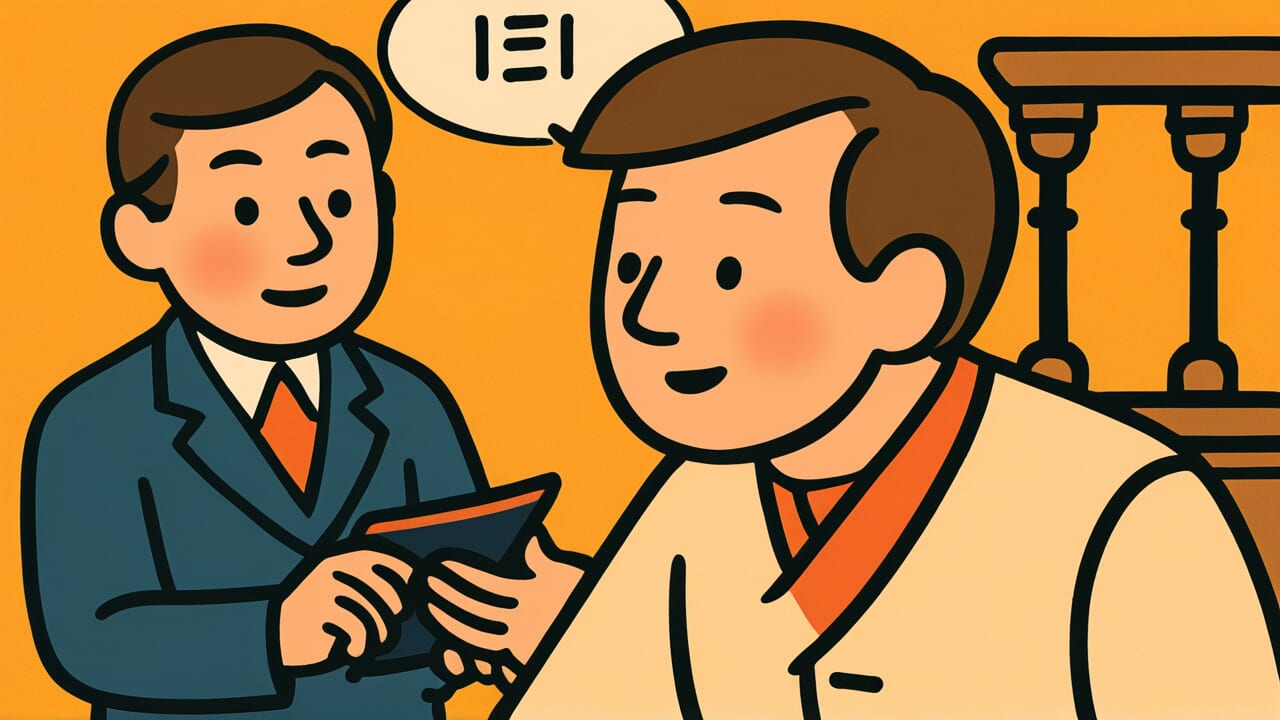How to Read “Not only does the lord choose the retainer, but the retainer also chooses the lord”
Kimi, shin o erabu nomi ni arazu, shin mo mata kimi o erabu
Meaning of “Not only does the lord choose the retainer, but the retainer also chooses the lord”
This proverb shows the principle of mutual choice. A lord chooses retainers, but retainers also have the right to choose which lord they serve.
At first glance, it seems the lord has all the power. The lord picks retainers, and retainers simply obey. But this proverb reveals a deeper truth.
Retainers also have the right and responsibility to judge whether a lord is worth serving. They can choose who deserves their loyalty.
This idea applies to modern workplaces and organizations too. Bosses choose employees, but employees also choose bosses and companies where they can use their abilities.
We use this proverb when we want to emphasize mutual respect rather than one-sided obedience. It argues that talented people should choose environments that value them and help them grow.
Only when both sides choose each other can a truly healthy and productive relationship form. This proverb captures an essential truth about human relationships.
Origin and Etymology
This proverb comes from ancient Chinese philosophy, especially Confucian discussions about the relationship between lords and retainers.
In ancient China, thinkers believed the lord-retainer relationship should be based on mutual trust and choice, not one-sided obedience.
The philosopher Mencius developed the concept of “changing the mandate of heaven.” He taught that people have no duty to serve a lord without virtue.
Mencius said retainers and citizens have the right to abandon an unworthy lord. This was revolutionary thinking for its time.
In an era of absolute monarchs, the idea that retainers had freedom of choice meant relativizing power itself.
This philosophy reached Japan during the Nara and Heian periods when Confucianism was formally introduced. However, Japan had its own political system centered on the emperor.
The warrior class mainly adopted this thinking. It provided logic for justifying their choice of lords. During the Warring States period, military commanders sometimes used this reasoning when changing allegiances.
This proverb expresses the timeless principle of reciprocity in power relationships.
Usage Examples
- This company values the idea that not only does the lord choose the retainer, but the retainer also chooses the lord, so employees can evaluate management too
- The most talented people practice not only does the lord choose the retainer, but the retainer also chooses the lord by carefully selecting organizations that understand their value
Universal Wisdom
This proverb speaks to the universal truth of “reciprocity” in all human relationships. People easily forget they are not just chosen, but also choosers.
Those with power remember they have the right to choose. But they often overlook that they are also being chosen.
History shows that excellent lords attracted excellent people. Foolish lords watched capable retainers leave. This pattern repeats in organizations, families, and friendships.
One-sided relationships never last. Humans have dignity and a fundamental desire to choose their own lives.
This proverb endures because power asymmetry is real, yet humans always yearn for equality. Even when surface hierarchy exists, relationships should fundamentally involve mutual choice.
Humanity has long held this ideal. Truly valuable relationships come from mutual respect, not force. This unchanging human wisdom remains relevant today.
When AI Hears This
Viewing the lord-retainer relationship as a market reveals a surprising structure. This is what economists call a “two-sided market.”
Consider job hunting. Companies choose students, but students also choose companies. In markets where both sides select simultaneously, the relationship fails if only one side is satisfied.
The Nobel Prize-winning Gale-Shapley algorithm proved that matching without considering both sides’ preferences always collapses.
No matter how much a lord wants talented people, the relationship becomes unstable if those people prefer another lord. Conversely, if a retainer wants to serve but the lord refuses, no relationship forms.
What appears to be a one-sided power relationship is actually an equal transaction requiring aligned preferences from both sides.
More interesting is how this proverb assumes “freedom of choice” exists. Under absolute monarchy where retainers have no choice, these words become meaningless.
Ancient China had a culture where talented people moved between lords. A fluid talent market existed thousands of years ago, just like modern job markets.
From this perspective, stable organizations don’t bind people through commands. They create relationships where both sides choose each other.
Lessons for Today
For modern people, this proverb gives us courage to reclaim control of our lives. Do you focus only on being chosen by companies?
Have you forgotten you also choose the company? Do you worry so much about your boss’s evaluation that you neglect judging whether that boss helps you grow?
You have the right to choose. This isn’t arrogance. It’s responsibility for your own life.
Where you work, who you learn from, what relationships you build—you can choose all of these. Of course, you must also make efforts to be chosen.
But cultivating judgment about what to choose is equally important.
Modern society makes job changes and environmental shifts easier than before. This makes our era ideal for practicing this proverb’s spirit.
You don’t need to stay in environments that don’t value you. You have the right to choose places that recognize your talents and support your growth.
That’s not running away. It’s proof you’re taking your life seriously.



Comments